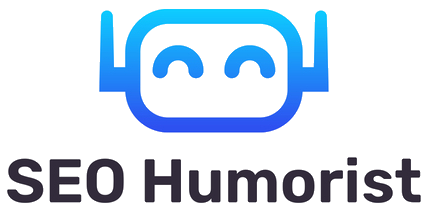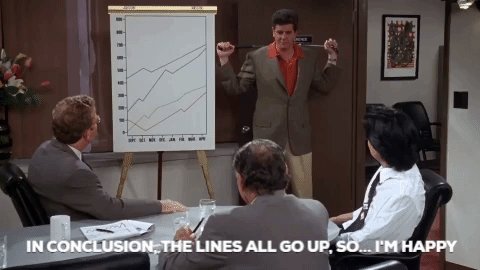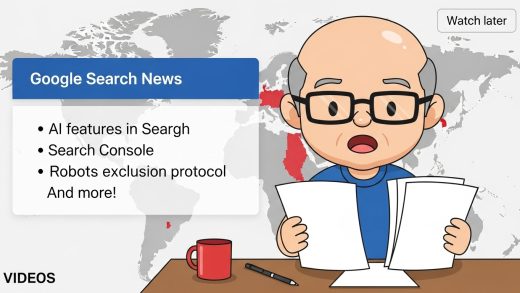Search Engine Optimization (SEO) is a marketing discipline focused on growing visibility in search engines to improve rankings and drive traffic.
–Moz
It’s getting your site found by people who don’t know you exist. At its worst, it’s the equivalent of a sign-spinner outside a pawn shop. At it’s best, it’s your perfect charades partner.

This is also what makes it such a valuable traffic channel. There are people who want what you have to offer and all you need to do is find out how they describe what you offer. It’s why, to this day, I don’t tell people I was a maritime instructor for a children’s historical reenactment program, instead I just say, “Pirate”.
Google has some 5.6 billion searches a day and they bucket those queries broadly into four categories. People use search engines to:
- Go somewhere
- Know something
- Do something
- Buy something
Put into practice, let’s consider “hamsters.”
There’s a difference between someone who types in
- Go: where can I buy a hamster
- Know: which hamster is best for a 5yo
- Do: how to raise baby hamsters
- Buy: order a Russian dwarf hamster online
And while each of these is a unique user, it’s also why a content plan needs to consider all of them. Buy terms are valuable, but it’s Know that has some of the widest reach for that “consideration” portion of the sales funnel.
How are sites served?
Sites (and their pages) are served based on their authority, relevancy, and user engagement.
Breaking those down further.
Authority
Instead of talking one-to-one with websites or publications, let’s use people.
Let’s say one site is represented by Oprah and another by my fourth grade teacher Mrs. Zrallack. Both publish the exact same recipe for chocolate chip cookies. Oprah has more authority, more reach, and therefore, is more likely to rank higher than Mrs. Zrallack’s recipe despite being identical.
Authority Caveat
There is a caveat to the authority factor. One way Mrs. Zrallack can outrank Oprah is if Oprah endorses Mrs Zrallack as the source of her recipe. In the SEO realm, this manifests as a backlink, but to keep the people analogy going, this happened in live action with Oprah’s Book Club. If an unknown author gets endorsed by Oprah, the reach is infinitely more massive than if the author self-published.
Relevancy
Regarding relevancy, if the two people had equal authority — no one has equal authority to Oprah — let’s say my third grade teacher (Mrs. Martin) and fifth grade teacher (Mr. Lee) both publish the exact chocolate chip cookie recipe, then it’s a toss up who will rank higher for a broad keyword phrase like “chocolate chip cookie recipe.”
Where it gets especially interesting is when the content starts to differentiate. Let’s say both add a bit of flavor to their content, Martin writes about how her grandmother came up with the recipe and Lee writes about options you can substitute (instead of butter, use margarine). Then when someone types in “chocolate chip recipe without butter” they’re more likely to be served Lee’s recipe, whereas when someone types in “chocolate chip recipe history,” they’re more likely to get Mrs. Martin’s as the top choice.
User Engagement
So what if those are the only two chocolate chip recipes in the world. The only two pieces of content on the internet. One that talks about her grandmother and one that offers substitutions, so what happens if someone types in “can I add an extra egg to chocolate chip cookies”?
Neither person’s content is specifically about adding to the recipe, so what then?
“The ranking itself is affected by the click data. If we discover for a particular query, 80% of people click on Result No. 2 and only 10% click on Result No. 1, after a while we… figure Result 2 is the one people want. So we’ll switch it.”
–Google
Google may see that Mr. Lee’s recipe talks about substitutions so they may serve that in the top spot… even if there’s no mention of extra eggs. This may lead people to click Lee’s page, but then click “back” because it doesn’t answer their query. Then — because it’s the only other page — the user may go to Mrs. Martin’s story about her grandmother and shockingly it includes a section where she first experimented with using an extra egg. This may satisfy users’ queries. Over time, Google will serve Mrs. Martin’s page above Lee’s.
User Engagement Caveat
So what if neither is relevant? How does Google know that? Google tracks your search usage. If Google sees you type in a query, click the top result, then click “back” from the top result and click into the second, then click “back” from the second one as well, then a satisfied user will conclude their session. A dissatisfied user will either click on the next result or refine their query. Instead of “can I add an extra egg…” they may write, “what do eggs do in baking?” This isn’t a new session, it’s not as though someone typed in a baking question followed by “who played Sherlock in the 2003 show?” Google recognizes that the user is still trying to get an answer to their original query.
The Long & the Short of it
You ever order something online and it arrives at your doorstep and it’s about 12 times smaller than you thought it’d be? Good SEO should ensure that what you typed in; what you thought you ordered, is what you’re getting.
Photo by Markus Winkler



